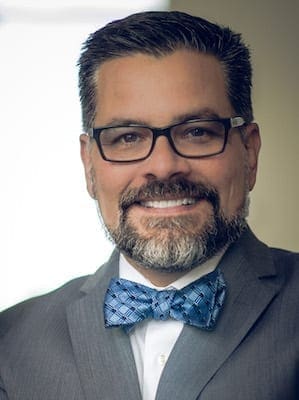Optics can speak more clearly and thunderously than words.
Such was the case when President Donald Trump delivered his State of the Union address this week.
The scene was familiar for those who have watched past presidents give the annual address to Congress. The president makes a statement; his party stands to enthusiastic applause while the opposing side remains solemnly seated.
This divisive portrait is a microcosm of our country.
As much as it pains me, there seems to be no denying the truth any longer. We are a divided union.
Instead of blue and gray, we are divided into blue and red. These colors, representing generalized stereotypes of political affiliations and ideologies, have become markers by which we dehumanize each other.
From the left, we use red to create hate-filled monsters championing wealth over well-being. From the right, we use blue to produce false narratives that generate unsubstantiated fear.
When will the U.S. learn? When will our citizens realize the old ways will not sustain the future? When will we quiet our voices and open our ears? When will we stop shaking our fists and start opening our arms?
Believe it or not, there is hope that can be found within the divided union.
The Apostle Paul, combating a fractured church in Corinth, proclaimed, “the body does not consist of one member but many … as there are many members, there is one body” (1 Corinthians 10:14).
It is vital that we come to a point in our country where we understand that each member has worth and value, a purpose and a dream.
The old frameworks we use to dehumanize each other must be dismantled, and I find hope in a new generation that appears to see and interpret the world in an entirely new way.
This emerging generation understands the value of open-source networks, the wealth of cooperative efforts and the riches of a diverse and beloved community.
If the U.S. is to succeed in the future, we must embrace a new model and strategy. Protest and counter-protest make a lot of noise and are sometimes necessary to raise public awareness, but conversation and compromise forge a more perfect union.
And there lies the struggle, the search for a more perfect union within a divided union.
In the divide, we can find hope, for within it we must fiercely search to discover conversation and compromise.
The founders of the U.S. were correct when they put us on the path to a more perfect union, knowing there is no such thing as arrival at the destination. Thus, we are always on the search.
We must always be willing to talk. We must always be willing to compromise. We must always be willing to think about the good for my neighbor instead of good for only me.
Then, and only then, will we be able to find the hope we search for that leads to the balm we need.
Mitch Randall is executive director of BCE and executive editor of EthicsDaily.com. You can follow him on Twitter @rmitchrandall.
Editor’s note: This is the first in a two-part series reflecting on the 2018 U.S. State of the Union address. Part two is available here.

